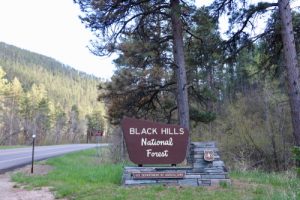
U.S. Rep. Liz Cheney (R-WY) and a bicameral group of lawmakers recently expressed concern about the U.S. Forest Service’s plans to reduce the Black Hills National Forest (BHNF) timber sale program over the next three years.
“Unless the Forest Service swiftly reverses course, its ability to care for the forest will be severely compromised, and the economically vital forest products industry that supports families in small communities throughout the Black Hills will be decimated,” Rep. Cheney and her colleagues wrote in a Feb. 16 letter sent to U.S. Department of Agriculture (USDA) Secretary Tom Vilsack.
Among the lawmakers who joined Rep. Cheney in signing the letter were U.S. Sens. John Thune (R-SD) and Mike Rounds (R-SD), as well as U.S. Rep. Dusty Johnson (R-SD).
They pointed out that for more than 100 years, the timber sale program at the BHNF has been the primary tool for successfully managing the forest and minimizing insect epidemics and wildfires that continue to plague other western national forests.
Timber sales in the forest also have historically been the primary means to treat hazardous fuels, and the local forest products infrastructure that’s in place has been able to complete this work, according to the lawmakers.
However, “if the Forest Service moves forward with significant reductions in the timber sale program, the infrastructure that plays a critical role in implementing the strategy to confront the wildfire crisis will disappear, crippling the agency’s ability to manage and protect the forest in perpetuity,” they wrote.
Rep. Cheney and her colleagues also pointed out that the vast majority of the BHNF suitable base for timber production has been analyzed under the National Environmental Policy Act (NEPA) at least once, but state foresters in Wyoming and South Dakota and the Forest Service’s 10-year strategy confirm BHNF data showing areas currently at risk of high severity wildfires.
“We believe the amount of previous analysis, acres designated as insect and disease treatment areas, and the immediate need for management in ponderosa pine systems optimally positions the BHNF to use many NEPA authorities to reduce wildfire hazards,” they wrote.
The lawmakers urged the Forest Service to immediately use all NEPA authorities available to expedite treatment on the BHNF in fiscal years 2022 through 2024, while planning additional work in subsequent years, and to provide funding and staffing resources necessary to successfully complete this task.



